- Elnaz Navidi Mjd
- Interior Design
- 872 views
- 1 comments
Contemporary house design refers to a style shaped by current trends and styles. This style contrasts traditional or historical designs, focusing more on modern, up-to-date designs that are in sync with the times. Contemporary design can vary in each era as it continually interacts with cultural, technological, and artistic changes in society. In this article, we give you enough information about this topic and the History of contemporary interior design, What Contemporary Home and Furniture Styles, the differences between modern and contemporary interior design, What are the elements of contemporary design, and the last paragraph, there is FAQ section ( Frequently Asked Questions) in which you will find the answer of your questions.
Table Of Content

History of Contemporary House Design
According to Sander, contemporary design emerged in the wake of the mid-century-modern movement, which had already set the stage for innovative approaches to design. This new style began in the 1970s, initially blending various popular aesthetics of the time, including modernism, postmodernism, and Art Deco, each contributing its distinct elements. As these styles merged and evolved, the concept of "contemporary" design gradually began to solidify, eventually distinguishing itself as a unique and standalone approach characterized by its adaptability and reflection of the current cultural and technological context.
Cyrus Crafts; Luxury & Unique Products
What Are the Elements of Contemporary Design?
Contemporary design comes from dynamic and evolving styles that show the trends and innovations of the present time; here are several important elements that define contemporary design:
- Neutral Color Palettes: Neutral colors such as white, gray, black, and beige are common in contemporary design. These colors made a peaceful atmosphere, unlike the vibrant colors.
There is a blog by the name of" Bohemian Chic Ideas in the Living Rooms", and the most common color that comes to use in this design is a neutral color. Have a glance at this article.
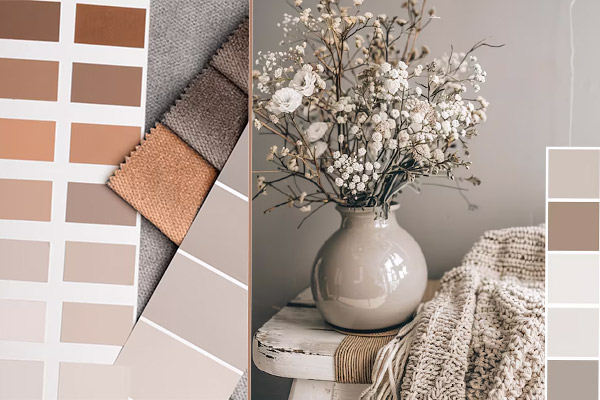
- Natural Materials: Wood, stone, metal, and glass are elements in interior design that represent the natural state and highlight their unique textures and beauty.
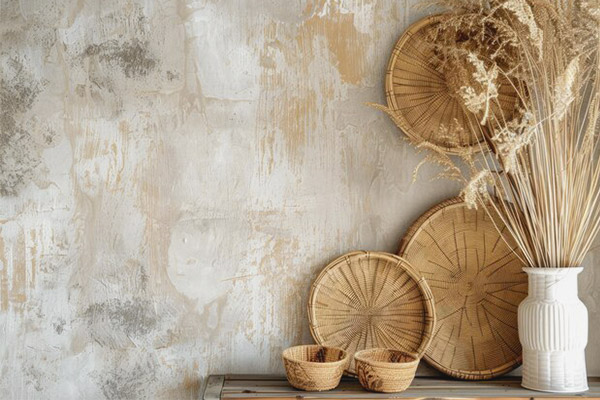
- Open and Functional Spaces: This design style features open spaces that make rooms feel bigger. It focuses on being practical, with designs that easily adjust to the needs of today's lifestyle.
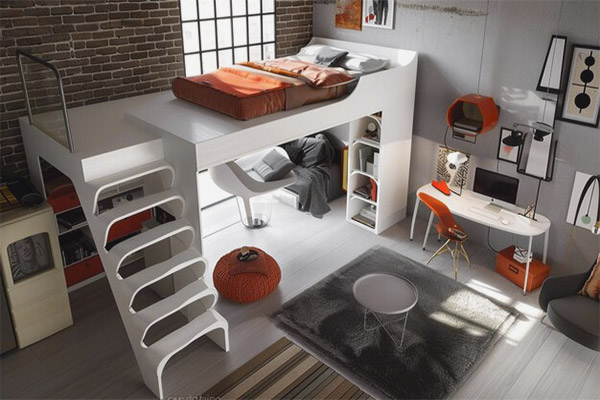
- Assimilation of Technology: Contemporary design incorporates innovative technology, featuring things like intelligent lighting, programmable thermostats, concealed entertainment systems, and home automation for added convenience.
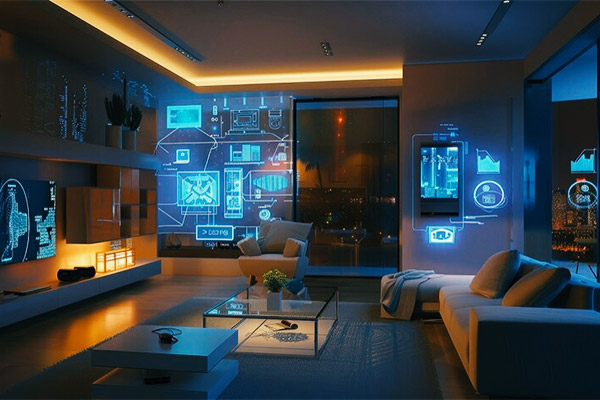
Here is some information about technology in interior design in ”Home Design Trend in 2024" blog post for you if you would like to know about it.
- Focus on Natural Light: Large windows and open areas maximize natural light, which is essential in contemporary design. Sheer or minimal window coverings enhance this emphasis.
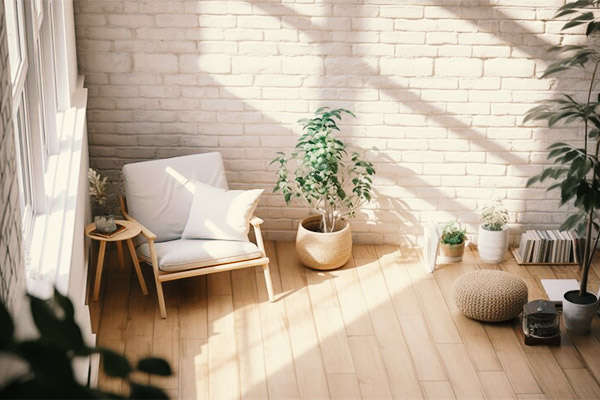
- A mix of Textures and Materials: Contemporary design often combines various textures and materials to create visual depth. For instance, a room might juxtapose sleek glass with rugged stone or metal elements.
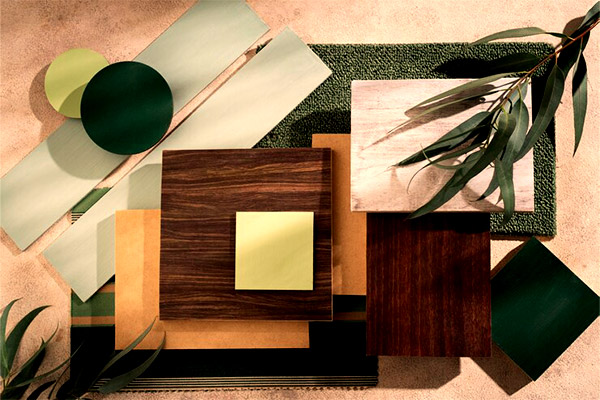
- Minimalism and Clutter-Free Spaces: Clutter is minimized in contemporary design. The goal is to maintain open spaces with only a few thoughtfully selected pieces of furniture and decor.
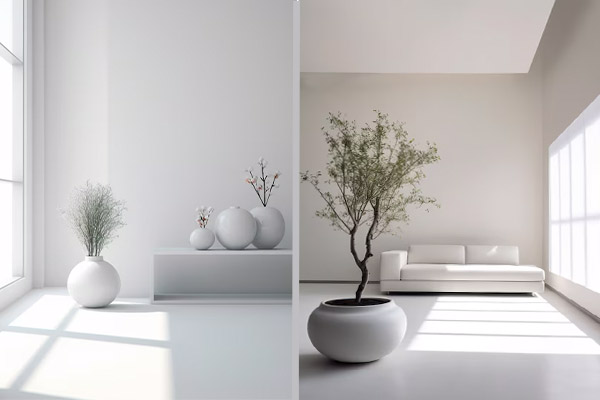
- Statement Pieces: Even though contemporary design keeps things simple and minimalist, often, they use some pieces that are bold enough to stand out, such as masterly artwork, an eye-catching light fixture, or a unique piece of furniture that really draws attention.
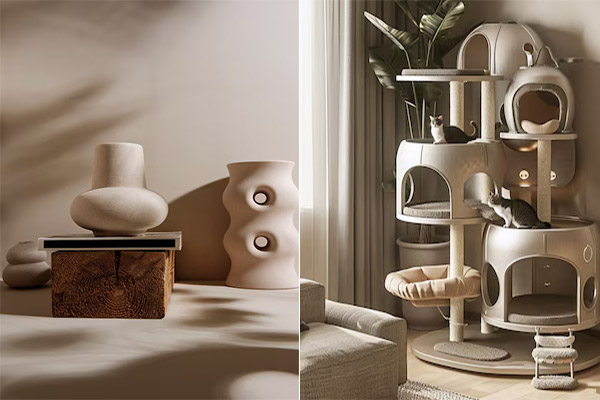
- Curved and Geometric Shapes: Contemporary design blending geometric and organic forms. Furniture and decor can have soft curves or distinct geometric patterns that enhance visual appeal.
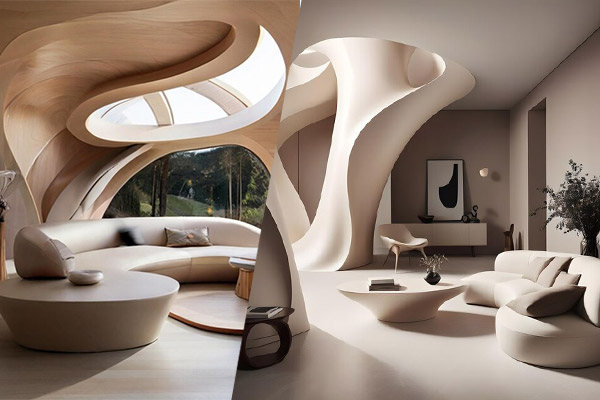
- Fluidity and Flexibility: This design style is versatile and fluid, allowing for easy reconfiguration or updates as trends change or need to evolve
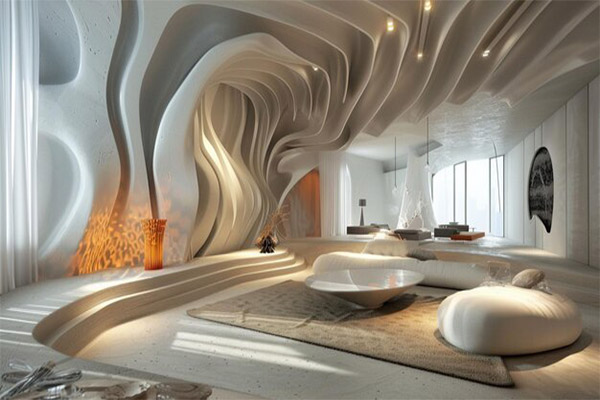
What is The Difference Between Modern and Contemporary Interior Design?
Modern design refers to a style that emerged in the early 20th century and has specific characteristics. This style emphasizes simplicity, clean and smooth lines, open spaces, and functionality. The materials used in modern design typically include wood, metal, glass, and concrete. Contemporary design often approaches minimalism, eliminating unnecessary decorations. For example, in a modern space, you might find furniture with simple designs and neutral colors.
On the other hand, contemporary design refers to styles that are currently popular and in use. This style is flexible and may borrow features from various styles, including modern design. Contemporary design can include curved lines, diverse colors, different textures, and new materials. Additionally, this style can encompass the influences of technology and contemporary innovations. In a contemporary space, you might see a combination of modern elements with more vibrant colors and bolder, more modern decorations.
FAQs About Contemporary House Design
A contemporary home embodies design elements and features that are indicative of today's architectural style. While it shares similarities with modern homes, contemporary houses are typically characterized by clean lines, abundant natural light, and a minimalist aesthetic.
What is the contemporary design approach?
Contemporary interior design is celebrated for its progressive approach, incorporating current trends, innovative materials, and a mix of various aesthetics. In contrast to many other styles that are limited to specific periods and follow rigid guidelines, it highlights the prevailing style of the moment. It remains in a continuous state of evolution.
What is the modern house style?
Modern home design emphasizes clean lines and geometric shapes. No more are features such as arches, ornate columns, window shutters, or any outlandish ornamentation. In place of these features that at one point spoke of luxury and wealth are simple shapes and intentional asymmetry.
What defines contemporary design?
Unlike modern design, contemporary design doesn't refer to a specific period—it's constantly evolving to reflect the popular styles of present-day design. It borrows qualities from modernism, minimalism, Art Deco, and other global styles without hyper-focusing on anyone in particular.
What Is Contemporary Architecture?
Contemporary architecture denotes the prevailing architectural style today. Structures built from the late 20th century to the present that feature unconventional or non-linear shapes, innovative materials, and sustainable building practices can be classified as examples of contemporary architecture.
The Last Words of CyrusCrafts About Contemporary House Design
We appreciate you taking the time to read our modern home design magazine. We talked about how this style is not only about being attractive but also focuses on being practical and eco-friendly. As design trends change, we can expect these ideas to influence how we create our living spaces. If you want to learn more about design, we cover a wide range of topics that can help you deepen your understanding.






Comments (1)